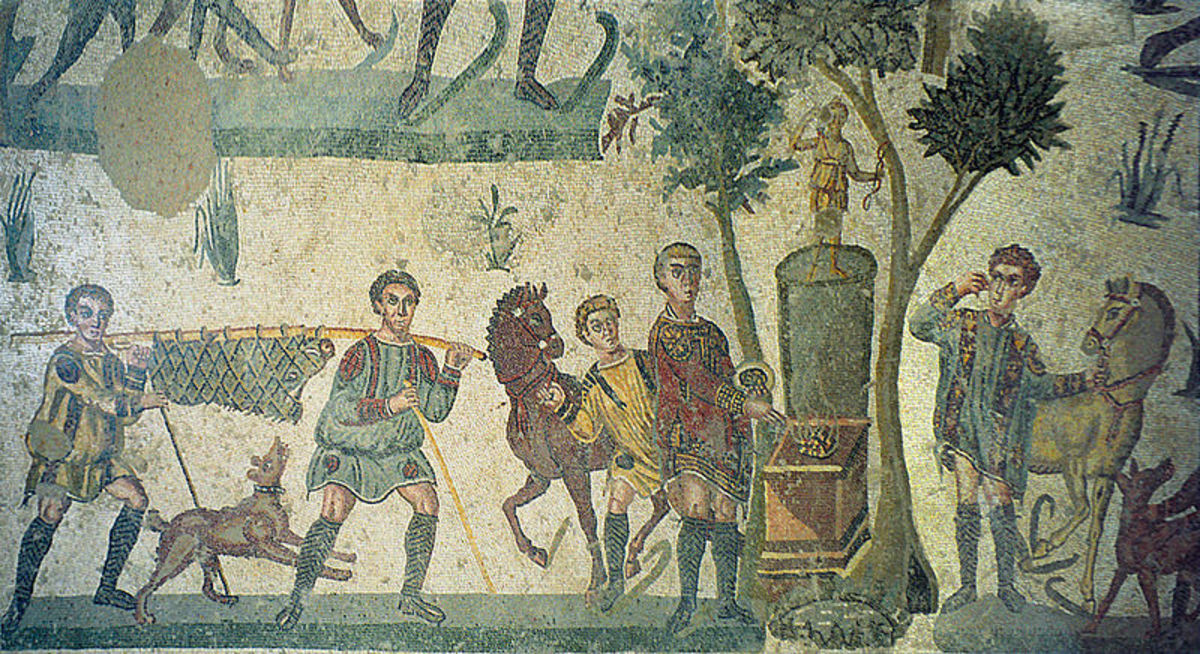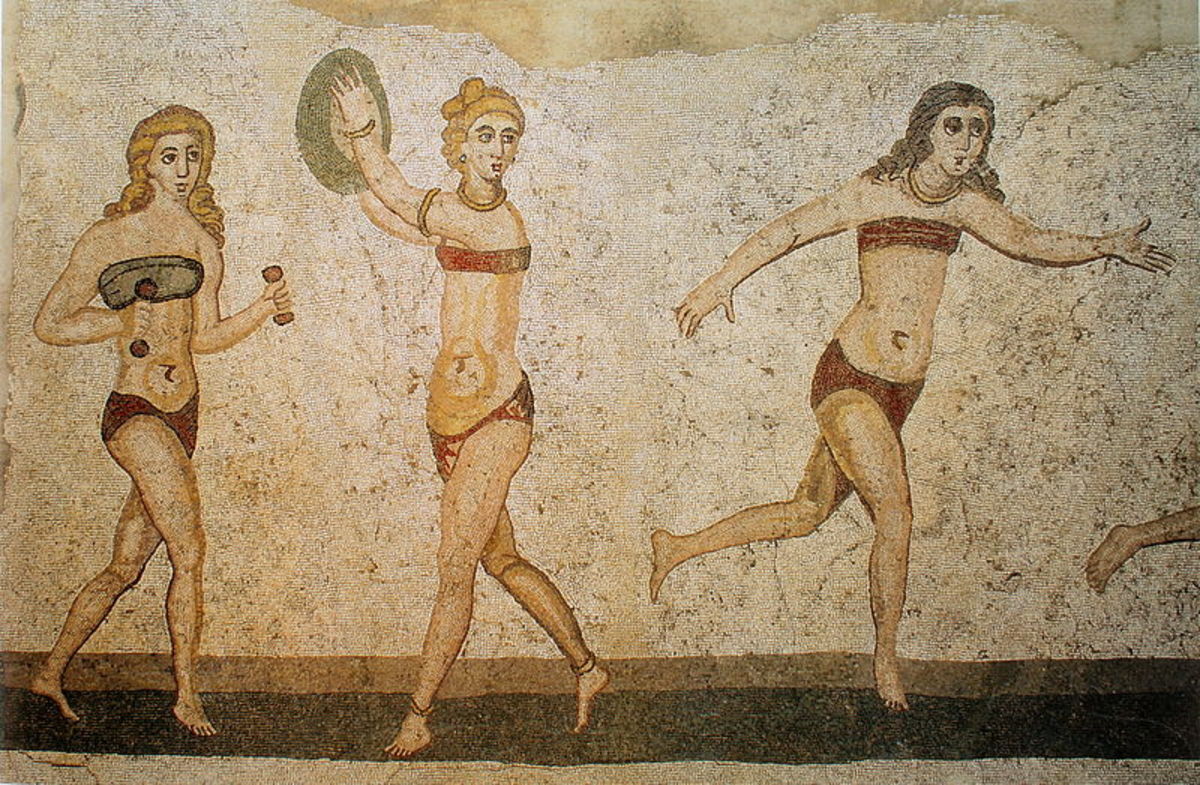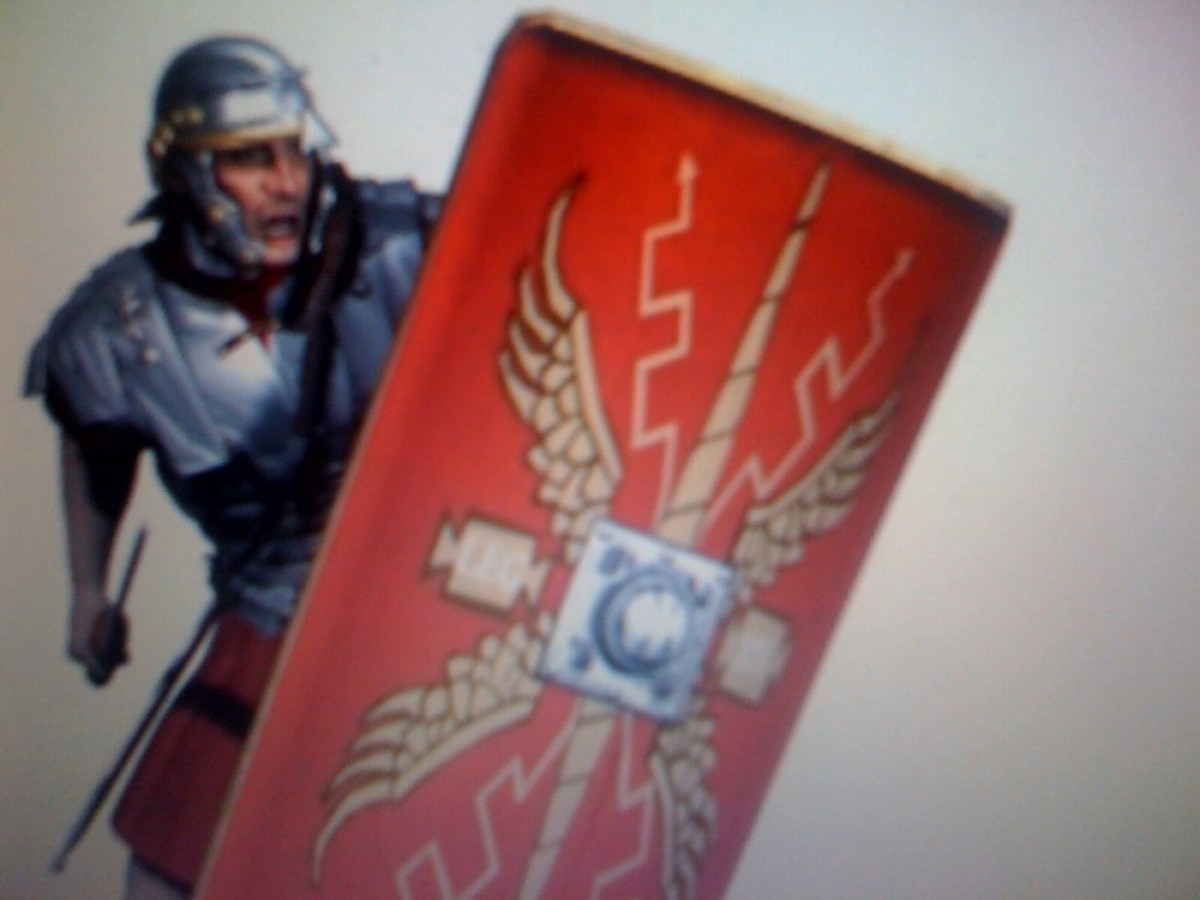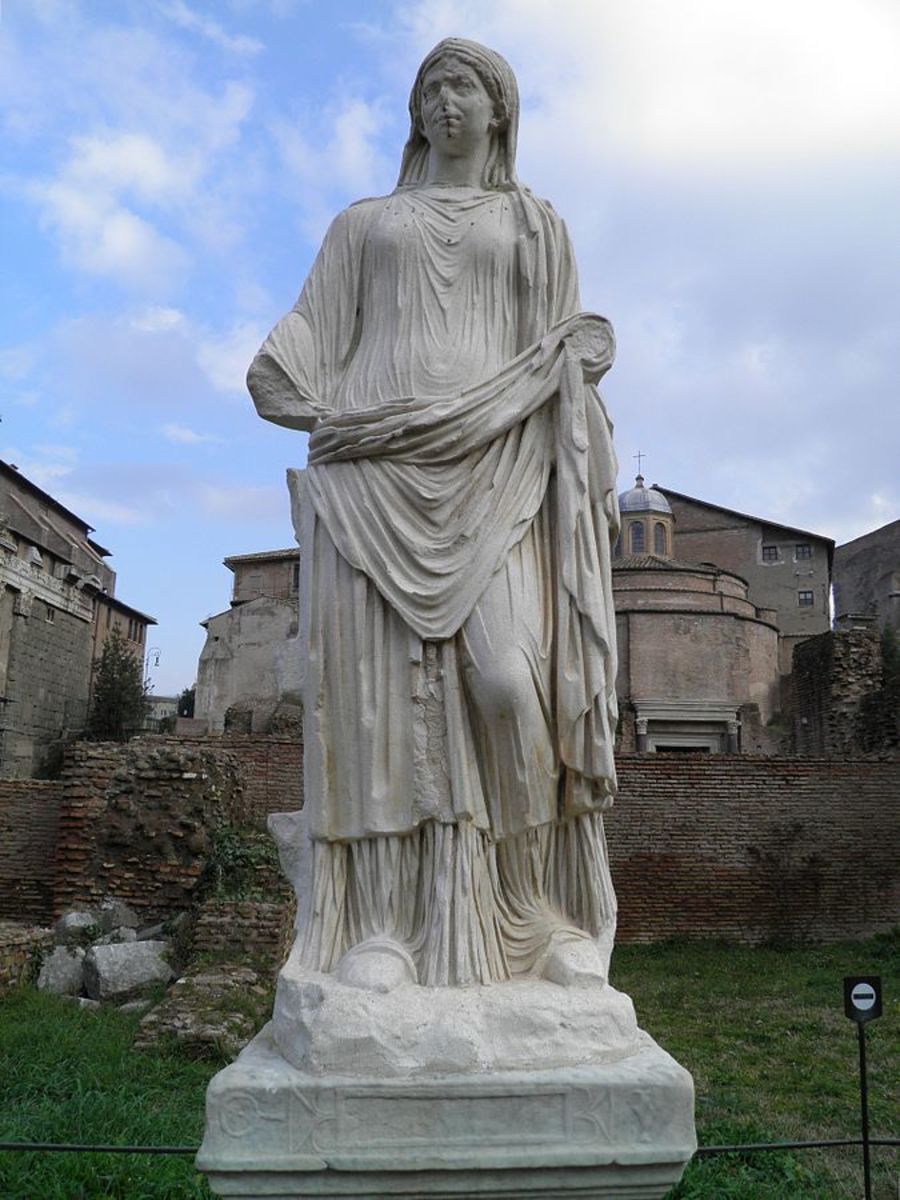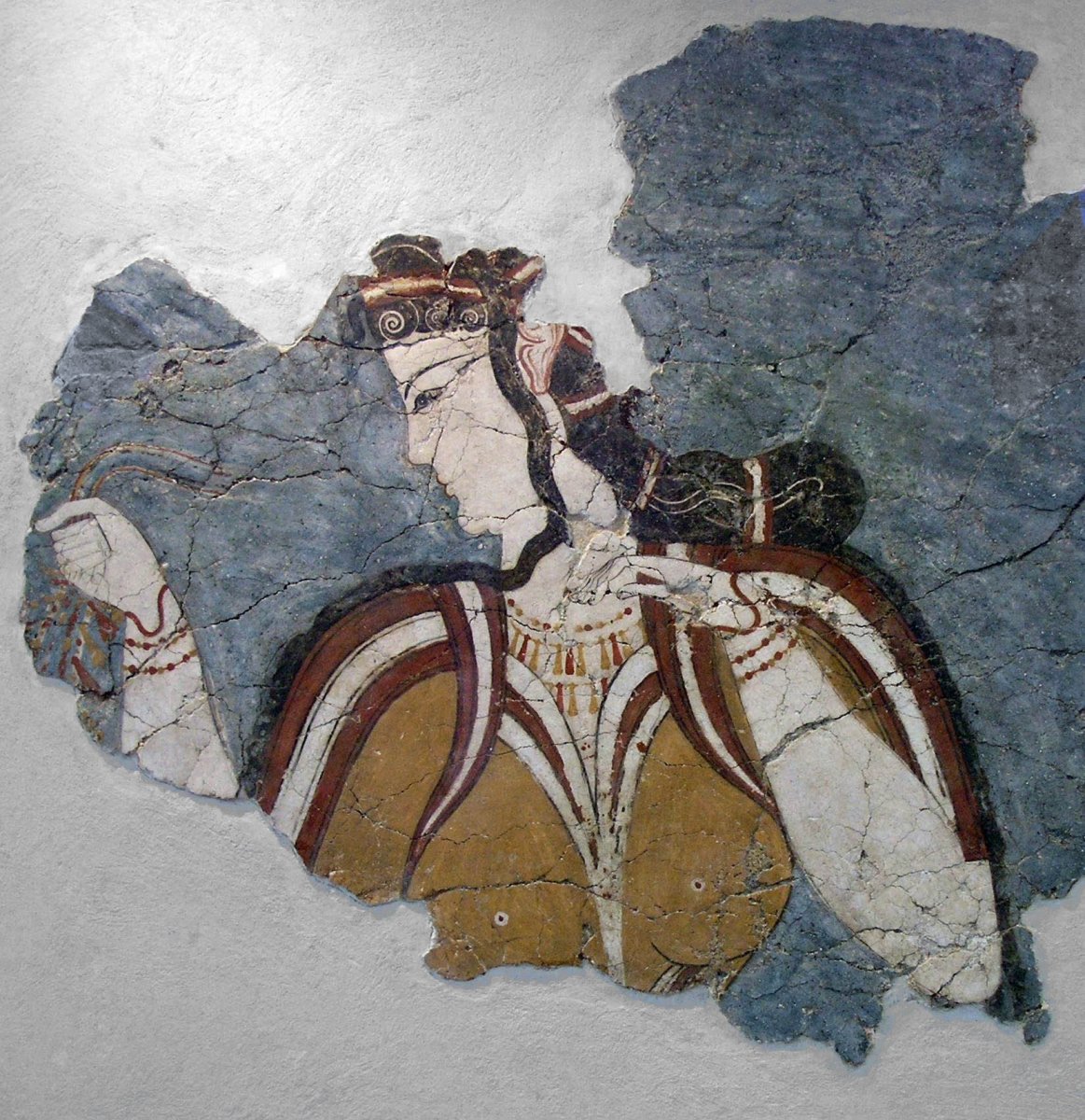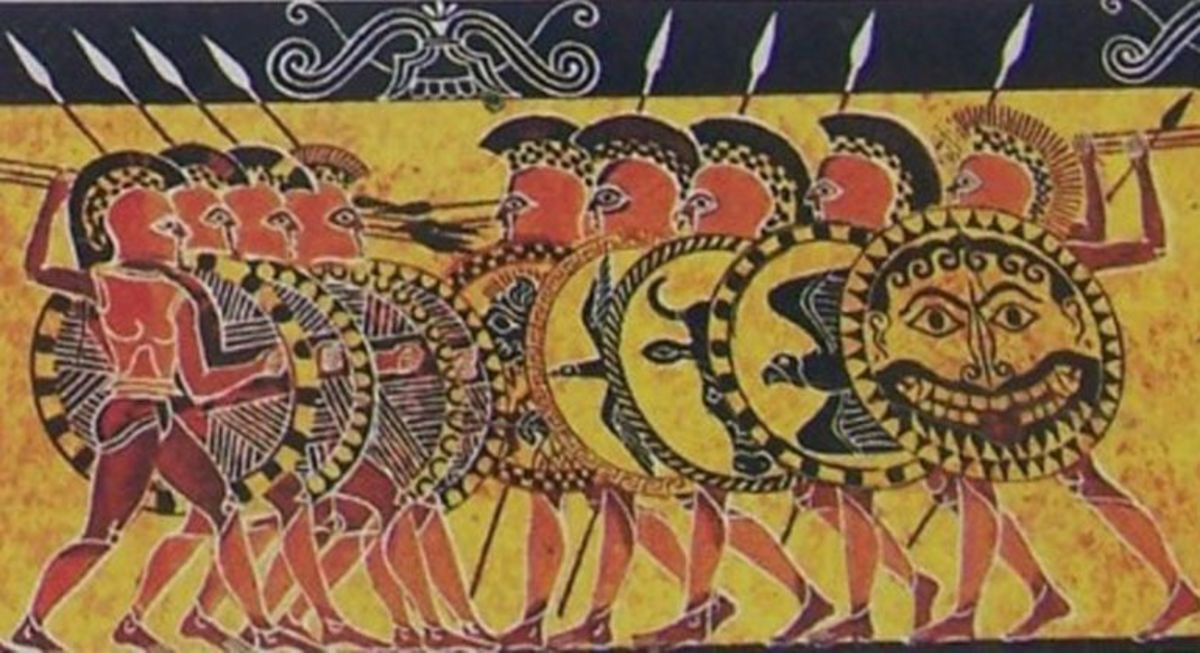- HubPages»
- Education and Science»
- History & Archaeology»
- Ancient History»
- Greek & Roman History
Realism in Roman Comedy
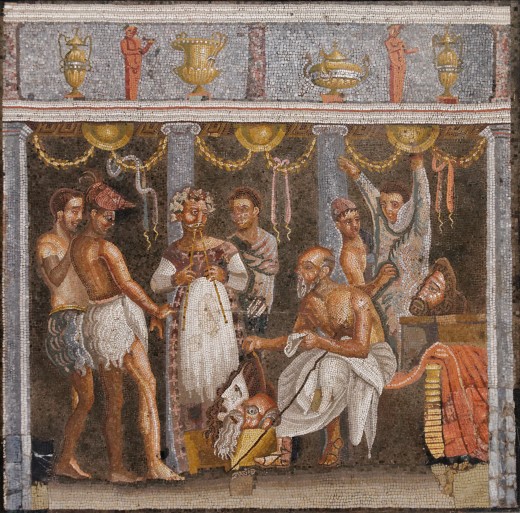
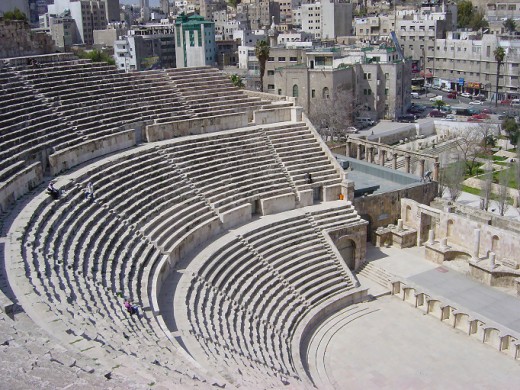
Roman comedy, like most theatre, has both realistic and unrealistic elements. Having been freed from such formal restrictions as the chorus, it displays the private lives of citizen in a humorous, yet realistic, manner. The characters are often stereotyped, but are nonetheless modelled on the kinds of characters one could come across in the streets of Rome. Within the comic plays we can find running slaves, strict fathers, cooks and playboy sons. These characters often get themselves into similar sticky situations, (e.g. a boy falls in love with a girl his father disapproves of) but all is resolved in the end. When we are discussing the question of how realistic Roman comedy is there are many elements we need to factor in. The first is that Roman comedy was put on stage for ancient audiences whose perceptions of the world and social interactions differed vastly from those in modern, Western societies. Therefore, situations, conventions, and reactions that we would see as unrealistic would have been a lot more acceptable for the play’s original audience. The elements of Roman comedy which I shall discuss in this hub are one’s which I believe come across as unrealistic or implausible to a modern audience, but which, I hope to make you see, would have been a lot more acceptable to an ancient one.
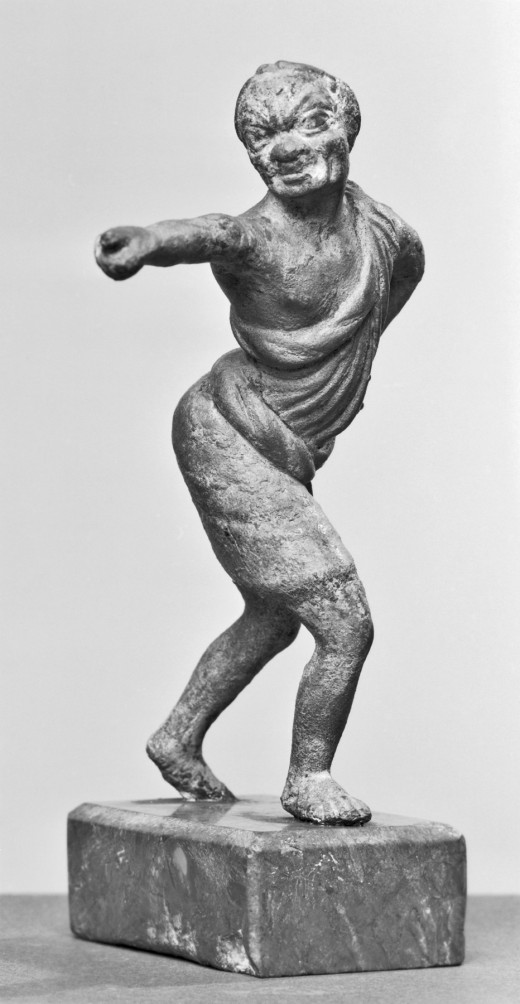
Prologues
An element of Roman comedy that comes across as unusual to modern audiences is the prologue. Today, prologues are very much associated with literary texts and not at all with live performance. The prologues of Terence in particular are remarkable as they do not function within the plot of the play (as do those of Plautus), but are instead used as a rebuttal and a defence of the work itself. Take for example the prologue to the Hecyra : the play was performed three times, once in 165 BC, and twice in 160. The first two attempts failed utterly with the actors being forced to leave the stage before the performance could be completed.[1] It was very important that there be an effective prologue for the third performance to justify it being put on stage yet again, and to ensure it got a fair hearing. Prologues were generally spoken by young men “because they had stronger lungs and could cope better with a noisy audience.”[2] Terence however, made a very deliberate choice here in having Ambivius Turpio, leader of the company, speak the third prologue. This prologue is written more in the style of oratory than anything else and the idea of the court room is set up in the actor’s first line: “I am dressed as a prologue-speaker but I come to you to plead a case”[3]. Ambivius, as an older man and leader of the company would have held a lot more authority than a younger, less experienced actor. His age also adds realism as court orators were rarely young men. Although Ambivius is speaking in the first person, the words he speaks are not his own, but were written by Terence, making this a very realistic piece of theatre. Terence has created an oratorical character using Ambivius’ own background, to be played by him as though the words were his own. This prologue may not have even appeared to be theatre to its audience and could well have been taken as the words of the actor himself, defending his work.
Prologues, in both Terence and Plautus, serve as metatheatrical devices. They inform the audience from the outset that they are watching a piece of theatre. This can achieve a numbers of outcomes. The audience may see the entire play as unrealistic, a made-up story in a fantasy world or it may set the limits of their expectations. If an audience are constantly reminded that what they are seeing isn’t real, it may cause them to reset the parameters of their reality, resulting in a suspension of their disbelief. Anything might happen in this made-up world and so things that may not appear realistic in the audience’s day-to-day life may seem entirely plausible on stage. For example, the idea that characters can stand outside their houses and not notice their neighbours conversing mere metres away from them seems entirely unrealistic. But if the audience keeps in mind that this is theatre, they can stretch their imagination to envisage the onstage street as being much longer than it actually is, and so it seems plausible that one neighbour may not notice another.[4]
Monologues and Soliloquies
Other metatheatrical devices used in Roman comedy that may be frowned upon for being unrealistic by modern-day critics are monologues and soliloquies. These, at first glance, may seem like unrealistic speeches used to bridge a gap in the onstage action (i.e. when one character leaves the stage and another has not yet returned) or at the very least clumsy breakings of the fourth wall that shatter the onstage reality. However, as Duckworth points out “We must remember that solo speech was a racial characteristic of the Greeks and the Romans and that the use of monologue in comedy was doubtless far more realistic to the ancient audience than it seems to modern critics”[5]. They could be very effective in realistically portraying a characters’ anxiety, fear, horror, or other extreme emotions. For example, Sceledrus in Miles Gloriosus has a heartfelt monologue in lines 304-312 in which he anxiously searches for a way out of the situation in which he has found himself:
What am I to do? The soldier chose me as her guardian. If I let this out-I die. Yet, if I’m silent, still I die, should this be discovered. Oh, what could be wickeder than women?While I was on the roof there, she just left her room and went outside! Bold and brazen badness, by the gods! If the master learns of this, our whole household will be on the cross, by Hercules. Me too! Come what may, I’ll shut my mouth. Rather stilled than killed I say. I can’t guard a girl like this who’s always out to sell herself![6]
The frantic pace of this monologue combined with the fear of punishment gives a very realistic portrayal of panic.
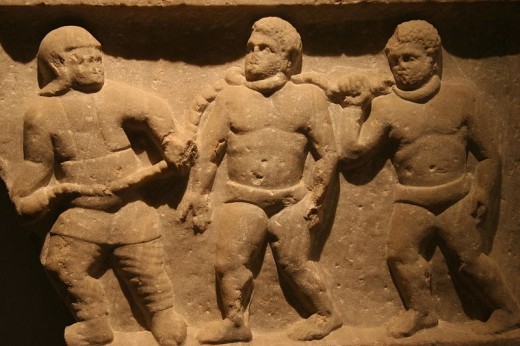
Fear of Punishment
Slaves often fear punishment in Roman comedy and the fears are very realistic ones. They tend to refer to beatings or being sent to either the mines or the mill. For example, in Terence’s Andria , Simo threatens Davos at line 199 with being flogged with whips and sent off to work at the mill[7] and at line 600 Davos even asks himself if there is any reason why he shouldn’t “go straight off to the mill.”[8] The mill referred to here is likely to be the mill used to grind down rocks mined by the Roman slaves. Diodorus, writing in the 1st century BC describes those working in the mines in Egypt as “unfortunate wretches”[9] and describes the process of breaking the rocks down into powder:
Thereupon the women and older men receive from them the rock of this size and cast it into mills of which a number stand there in a row, and taking their places in groups of two or three at the spoke or handle of each mill they grind it until they have worked [it] down...to the consistency of the finest flour.[10]
For a slave, being sent to the mill was a realistic fear as it meant a life of hard labour and endurance. Slaves in Plautus also worry about being beaten, and in some cases (i.e. Sceledrus in Miles Gloriosus above) even being murdered. Alan Watson, in his essay on Roman slave Law[11] investigates the protection available for slaves in the face of cruelty from their masters and this can be of some help in trying to establish how realistic the fears of slaves in Roman comedy are. Watson tells us that according to Dionysus of Halicarnassus the Roman censors could intervene if a master was being particularly cruel to his slave. However, he goes on to state that we have no evidence of this ever actually happening and so concludes that the censor’s power did not effectively check cruelty towards slaves.[12] Therefore, it was very possible that a master could treat his slave however he wished and so the slaves’ fears are realistic ones.
Take the Poll
Would you go to see a Roman comedy, performed as it would have been originally staged?
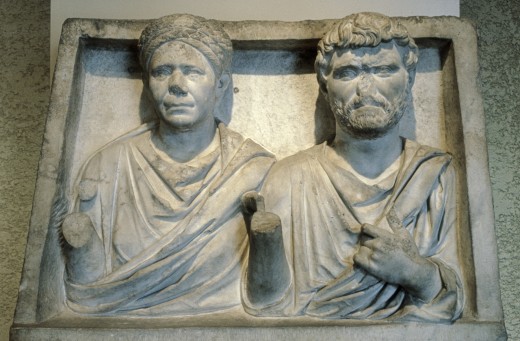
Men and Women
We have looked at the relationship between master and slave in Roman comedy but other social structures and relationships need to be examined. For example, the relationship between men and women is worth noting. Terence in particular presents an interesting relationship between men and women in which the man desires and attacks the woman resulting in a pregnancy and, ultimately, marriage between the two (e.g Hecyra, Adelphoe). This situation is horrifying to a modern audience, and the subsequent marriage of the attacker and his victim is far from what we’d conceive of as a realistic and satisfactory ending. However, if we look at the situation from the perspective of a Roman living in the 2nd century BC we can begin to see it as more realistic. An explanation as to why the girl is presented as being raped rather than simply seduced in the play is offered by Karen Pierce who says that:
For the purposes of New Comedy it is apparently preferable that a ‘respectable’ woman should be r***d rather than seduced. Physically her honour may have been defiled but mentally she remained pure. To portray and Athenian girl being seduced would perhaps have reduced her respectability in the eyes of the audience.[12]
So here we find an explanation to the violent manner in which the girl becomes pregnant. The next big problem we have to deal with is the idea of her marrying her attacker. Once again we must think about this from an ancient perspective. Roman men were very concerned about chastity and purity as marrying an untouched woman was the only way they could ensure that any children born were their own. Marrying a woman who had been attacked was a risk as she was likely to be carrying the child of her attacker and even if the woman was not pregnant her physical purity was not intact and so she was thought of as ‘damaged goods’[13] Women such as this could well have faced lives of solitude and spinsterhood. As unmarried citizen women had very little standing in society it is plausible that marrying one’s attacker was a positive option. The situation then, is a lot more realistic than it seems at first glance and the emotions that go with it are portrayed realistically too. Although the plays never focus on the suffering of the young girls, we do find a number of lines in which the consequences of their ordeals are shown. For example, in Eunuchus, Thais describes the attacked Pamphila as being in tears, with her clothes torn, and not saying a word;[14] and in the Hecyra Myrrina says Philumena had been “r***d a while ago by some brute”[15] and describes it as a “disgraceful injury the poor girl has suffered.”[16] The brutality of these attacks, then, is not glossed over in the plays but is portrayed realistically, albeit in very small doses.
Context
Although a modern reader might get a shock when reading the plays of Terence, or be unimpressed about the realism in the theatre of Plautus we must remember the context in which they were performed. Each person has the power to construct their own reality. We can see this most clearly when we think about religious and spiritual beliefs and so I will use them as an example; for one group of people, the reality is that God is looking down on us and if we are good we will go to heaven. This reality colours the way in which they see the world and live their life. The reality of another group of people may be that they will be reincarnated in their next life, and so they live their lives according to that belief. The modern Western reality is that everyone has equal rights, men, women, rich, poor, and so we live our lives looking through the lens of equality. In order to understand and evaluate how realistic Roman theatre is, we need to look at it through the lens of the Roman people and consider their reality.
References
[1] Terence, The Comedies, trans. Peter Brown (Oxford: Oxford World Classics, 2006) p. 54
[2] Dwora Gilula, “The First Realistic Role in European Theatre: Terence’s Prologues”, Quaderni Urbinati di Cultura Classica, Vol. 96, No. 3 (2001): 101 http://www.jstor.org/stable/20547015
[3] Terence, The Comedies, p. 61
[4] George E. Duckworth, The Nature of Roman Comedy: a study in popular entertainment, (Princeton: Princeton University Press, 1971) p. 122-123
[5] Ibid p. 101
[6] Plautus, Four Comedies, trans. Erich Segal, (Oxford: Oxford University Press, 1996) p. 16
[7] Terence, The Comedies, P. 15
[8] Ibid p. 33
[9] C.H. Oldfather, Diodorus of Sicily, (Cambridge: Harvard University Press, 1967) p.
[10] ibid
[11] Alan Watson, “Roman slave law and Romanist ideology”, Phoenix, vol. 37, no. 1, (1983) www.jstor.org/stable/1087314
[12] Ibid p. 54
[13] K.F. Pierce, “The portrayal of r*** in new comedy”, in R*** in Antiquity, ed. S. Deacy and K.F. Pierce (London: Classica Press of Whales, 1997) p. 166
[14] A term used in Terence, The Comedies, p. xx
[15] Terence, The Comedies,p. 190
[16] ibid p. 74
[17] ibid. P. 75
Can't get your hands on the books? Check out these links for free texts.
- Perseus Search Results
Link to free Plautus texts - Perseus Search Results
Link to free Terence texts
© 2012 Emer Kelly



